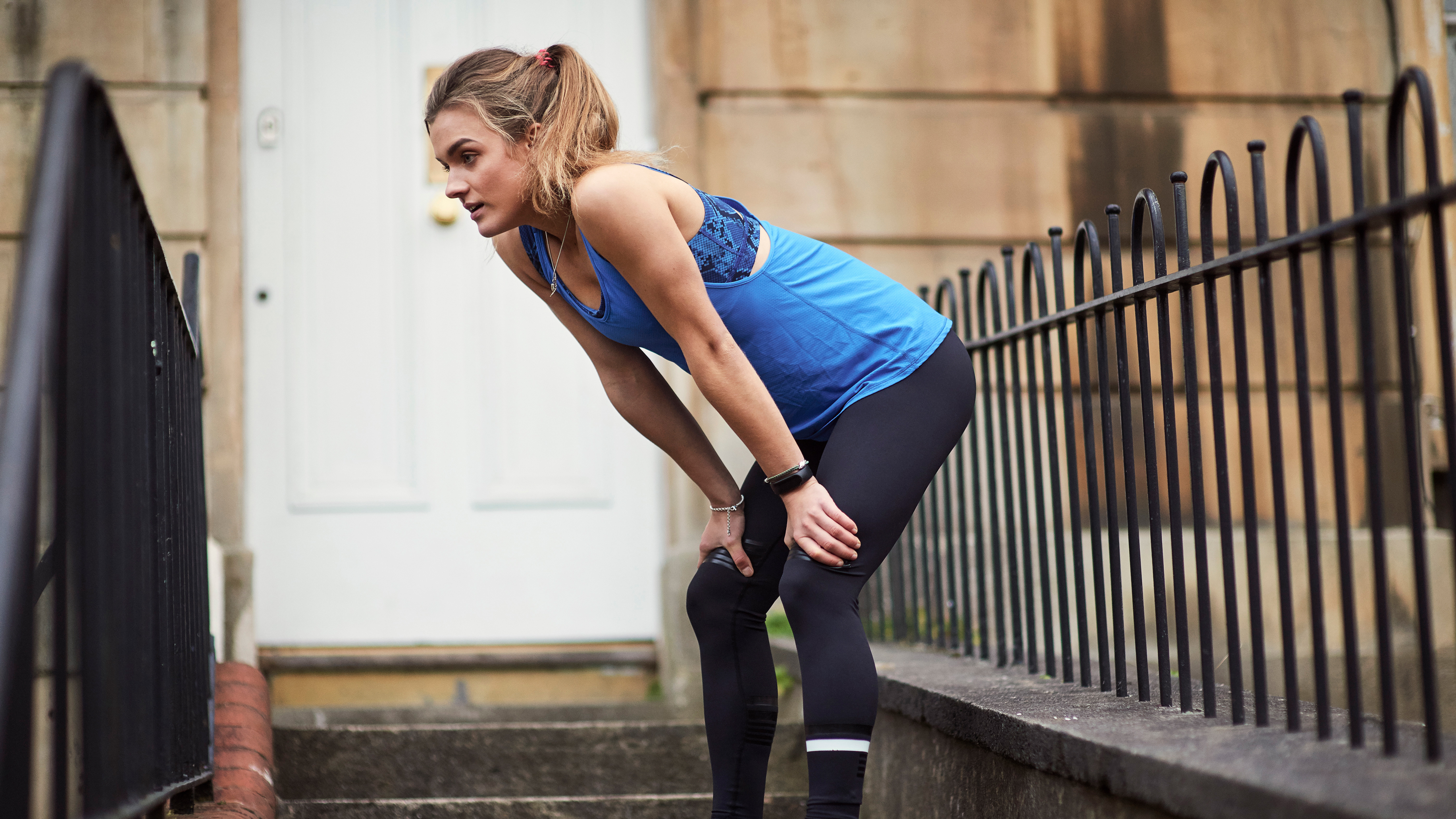Fitness trackers: Why you should SWITCH OFF your health and fitness apps (sometimes)
One new study showed the "gameification" of fitness tracker information was causing anxiety in young people


Start your week with achievable workout ideas, health tips and wellbeing advice in your inbox.
You are now subscribed
Your newsletter sign-up was successful
If you've ever felt a pang of anxiety when the Duolingo bird chirps at you after a long period of time away, you're not alone. Yes, you downloaded the app because you thought you'd give Mandarin a try while in lockdown, but now it just won't leave you alone.
The same can happen with our fitness apps. While being encouraged to exercise more and eat right is usually a good thing, so much information and constant reminders can sometimes make us feel like we're "failing" and causing unnecessary anxiety.
If this rings true to you in some ways, you're not alone. Feeling anxious when looking at fitness apps is more common than we thought, especially in young people, as a study done by researchers from the University of Bath found out. The study, published in a report by Digital Health Generations, found 45% of young people used smartphone apps or other trackers to monitor their health, but many of them worried about the information they received.
Tom Madders, Director of Communications for charity Youngminds, told the BBC fitness trackers could become an "all-consuming" experience, despite having a positive effect in relation to overall health. Other respondents to the survey reported "obsessive behaviour, anxiety and terror".
This is a phenomenon many adults can relate to as well: half of all fitness tracker users studied by the University of Washington felt guilty about their lapsed exercise habits and use of the tracker.

Fitness apps provide you with lots of information such as the calories you have expended, your resting heart rate, how well you sleep and lots more. Some fitness trackers can prompt us to move more when we've been sitting at our desks too long, helping us offset a sedentary lifestyle.
Many studies have shown us this data is good when it comes to helping us stay well, as a review of different scientific studies published in the journal Sleep and Technology found data from fitness trackers led to improved blood pressure, asthma symptoms and improved mood in many participants.
Start your week with achievable workout ideas, health tips and wellbeing advice in your inbox.
However, feeling guilt and anxiety is no good for anyone. These feelings are indicators of more serious problems later down the road, leading to long-term disorders like generalised anxiety and depression. In some cases, obsessing over data can lead to an unhealthy relationship with exercise and nutrition.

The solution seems to be, like smartphones, gaming and other addictive technologies, is to regulate your use. Turning off the smartwatch, Fitbit or exercise app and allowing yourself an afternoon in which you're not tracking can be very restorative.
Lots of studies have espoused the benefits of digital detoxing, removing devices that deliver notifications from your environment so you can more effectively unwind. Try to switch off your tracker, phone, laptop and tablet at least once a day to reset and relax.
Fitbits, Apple Watches and other fitness-orientated devices are fantastic tools to help us better understand our bodies. But in the name of your health, ironically you should make some time to step away from your health apps.
Liked this?
Matt Evans is an experienced health and fitness journalist and is currently Fitness and Wellbeing Editor at TechRadar, covering all things exercise and nutrition on Fit&Well's tech-focused sister site. Matt originally discovered exercise through martial arts: he holds a black belt in Karate and remains a keen runner, gym-goer, and infrequent yogi. His top fitness tip? Stretch.
